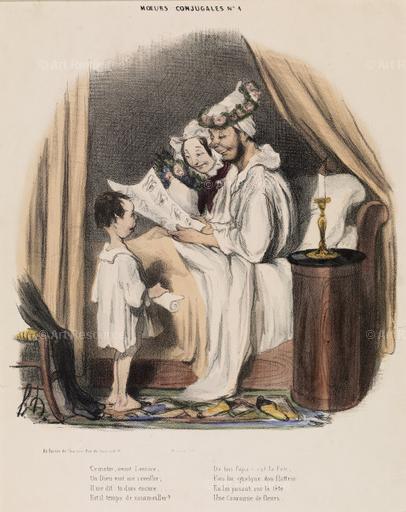Cum grano salis. With a grain of salt. The phrase has kept me company for years. Within days of leaving our Brooklyn brownstone for this house outside the city, I painted it over the door that leads from the kitchen down to the boiler room. It was up on the lintel before I even hung curtains or finished unpacking. Somehow, it seemed more important than knowing where to put the couch or find the toaster.
New to exurbia, my husband and I were in a strange house on unfamiliar turf. We did not know the roads or the neighbors. We could not walk to a newsstand anymore, had never started up a lawn mower, or watched deer grazing under the window. And we were clueless about why the previous owner thought it helpful to leave us his power saw.
Night noises were alien. We had exchanged the drone of traffic for the croak—more like quacking— of tree frogs and the peculiar screech of a territorial owl. That high-pitched, yodeling bark of a coyote and the distant squalling of feral cats in the dark set us thinking of street muggings. The sound of raccoons rifling a garbage can triggered images of less benign activity on our old block near Prospect Park. Should we call the cops or go out and look?

In short, we were disoriented. We did not quite recognize ourselves here. How would we know who we were when we got up in the morning without the light and guide of a family motto? We needed a rallying cry. Our own bugle call. Reveille. But what should it be?

Choosing one was hard work. Proposals and eliminations followed each other faster than opening post positions at Belmont. One early contestant for the door frame was “Never Trust a Nice Guy.” We both liked that, my husband and I. Problem was, by any ordinary standard, we were pretty nice ourselves. Would visitors take the advice as a veiled confession? Would it make them wary, warn them off? Worse, would they think we meant them?
“I’m From Missouri” strutted up and down the runway for a while. But it did not make the finals. So much of what we cared most about simply could not be demonstrated, never proven. Besides, we were both from the Bronx. He was West Bronx; I was East Bronx. Each, a long way from Missouri.
Then there was “Other People!,” with an exclamation point to illustrate exquisite exasperation. That really tempted us. But might it be interpreted as a tad unfriendly? (And, truth to tell, it likely was.) It had the flavor of No Exit. Could we make new friends under a line that conjured up “Hell is Other People”? Sartre never really said it, but we all think he did—which comes to the same thing. So, the words had to go.
In the end, decision came naturally from the one aspect of temperament we completely and delightedly shared: a natural bent toward skepticism.
Then why not nullius in verba (on no one’s word), motto of the Royal Society since 1663? It is, after all, an upstanding, hard-headed phrase for an admirable stance. It gives no quarter to facile judgments, hasty or glib assumptions. But again, just as with “I’m From Missouri,” our hearts held too much that cannot be verified.
By contrast, cum grano salis has some of the steel of nullius in verba yet still yields to a second, less stringent purpose. Properly applied, there is a kindness to it. It acts as a prompt to a degree of saving detachment from immediate nuisances and difficulties. In a subtle way, the phrase lets the air out of those things we tend to make into dramas. The accidents and twists of circumstance, the disappointments, minor crises, and lesser sorrows of living—all to be taken with a grain of salt.

Cum grano salis is a motto that travels well with a marriage. It is generous to the tug of family life. We learned over the years to take each other’s failings with a grain of salt. The lesson began early. Good that it did. Like any schooling, it was not always welcome. But grace came with it.




